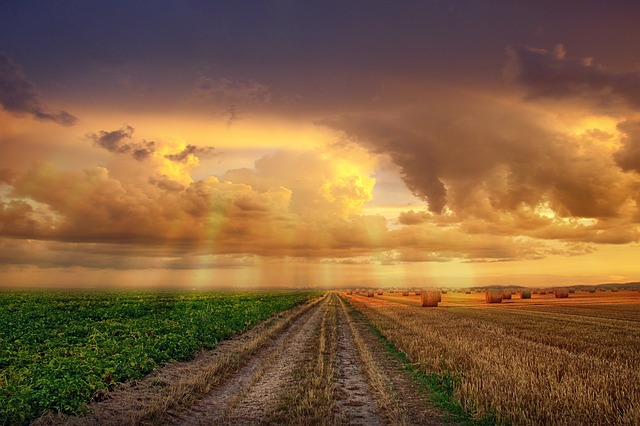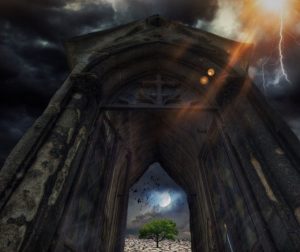
A couple weeks before the Corona lockdown ensued, I met a friend for breakfast on a Sunday morning at a local diner, a decadent dive of sorts that probably hasn’t been renovated in 30 years, has a menu that stretches to the Idaho border, and serves cinnamon rolls that are as big as your head.
It’s the kind of place where I’d picture a 57-year-old hardened detective nursing a cup of coffee as he uses empty sugar packets and a smoldering ashtray to intently recreate a crime scene for a rookie cop sitting across the table, all the while allowing a cigarette to dangle precariously from the corner of his mouth, its smoke streaming up and disappearing into a dense haze that blankets the air. Back when smoking in public was a thing, of course.
That morning, as I slipped into a dark-green vinyl booth and waited for my friend to show up, there was no such excitement going on. Four older women were at the table next to me, their conversation nondescript. A couple people sat at the counter on the other side of the restaurant.
After a few minutes, two men carrying Bibles came in and sat down at a nearby table. I’d guess the older man was in his fifties, the younger man probably in his thirties. The older man’s Bible was very large. A statement piece, of sorts.
I didn’t pay much attention to their doings, figuring they were going to have a Bible study over breakfast. “Knock yourselves out, guys,” I thought to myself. “Just be careful where you wield that big ole thing.”
My friend showed up and we started to catch up on the latest goings on in our lives. As we talked, we’d occasionally hear a distinct comment from the Bible Table. It was mostly the older guy, who seemed to be getting louder for emphasis. The table was in my line of sight and I noticed the man growing more and more animated as the conversation continued. His big Bible was flopped open, small pieces of paper with notes on them scattered about.

It was clear they weren’t having a Bible study. The younger guy didn’t have his Bible open at all. He was listening to the older guy, responding mostly with nods and uh-huh’s .
My friend and I weren’t interested in what was transpiring at that table, but we kept clearly hearing the words “gospel” and “sin” rising to the surface. Then it became clear. He was practicing a sermon, and the more he mentioned sin, the louder and more animated and intense he got. This diatribe was definitely meant for an audience.
He started to throw in the word “cross,” at which point the intensity was mixed with palpable indignation. We could feel it from our table, exchanging almost uncomfortable glances with each other.
Occasionally, he broke out of “preacher” mode to mentor the younger man, insisting that “people need to understand,” and mentioning “the congregation,” “sin,” and “the cross.”
We did our best to block out the distraction, but then, after the man returned to preacher mode, he said something neither of us could block out.
“No matter how good you feel, you’ll never know how bad you are.”
The words were delivered with bold intensity. With conviction. With a rage that was controlled, yet unmistakable.
My eyes locked on my friend’s, stunned. His jaw dropped in disbelief.
“Wait. Did he actually just say that?” I asked. Thinking maybe I misheard, I repeated the words. “‘No matter how good you feel, you’ll never know how bad you are.’ Is that what he said?”
My friend nodded. “Yeah, that’s what he said.”
We stared at each other, stupefied.
My jaw clenched and I felt my blood start to boil. Part of me wanted to storm his table and unleash a string of f-bombs and tell him what he could do with his gigantic Bible.
But I took a deep breath, looked off to the side and then back into my friend’s eyes, and simply said “Can you believe that’s the world we came from?”
He had a slightly nauseated look on his face. “I know.”
It’s super ironic, because “gospel” means “good news.” And this man’s passionate exhortation was peppered with the term.
Yet, the gospel that’s been crystallized within the greater Christian world has a huge element that, unfortunately, can be summed up with what this man said: No matter how good you feel, you’ll never know how bad you are.
Sure, it may be packaged more attractively, edited for consumability, and delivered with more finesse and grace, but that’s the underlying message.
At the very core of who we are, we’re messed up. We’re lacking. We’re unworthy. We have no intrinsic value apart from choosing the proper response to being told that we’re messed up, lacking, unworthy, and without intrinsic value.
And, as this gentleman was so eager to point out, we better not forget it. “You’ll never know how bad you are.”
This message wasn’t only happening at the table in the diner in preparation for a Sunday sermon. It’s a message that’s rampant.
And damaging.
Words have power. We all know that. Science has proven it. The Bible even speaks to this effect.
I’ve made some bad choices with my kids over the years and I’ve said some things I wish I hadn’t, but I would never, ever think of saying something like “No matter how good you feel, you’ll never know how bad you are.”
Put in this context, it’s a no-brainer. If I did say something like that to my kids, I’d probably get lambasted from everyone who knew I’d done it. And rightly so.
And yet so much of the Christian world is marinating in this very message. Absorbing it, whether consciously or subconsciously and being affected accordingly.
The problem is it isn’t true. It’s just bad theology. Theology that was surprisingly absent for the first thousand plus years of the church’s existence.
This is why my blood can start to boil and I want to start dropping f-bombs. Because this message can be crippling and people are internalizing it as truth when they don’t need to. When they shouldn’t be.
My friend and I expressed gratitude for extricating ourselves from that form of religion, then quickly carried on with our time together.
I’m not sure who was ultimately on the other end of that man’s message. But it was a Sunday morning, so I’m sure countless people near and far were about to be on the other end of some form of that message.
And unfortunately, it’s a fiercely protected message. I remember years ago when I started to push against the message in my own church at the time, only to find myself one night at a table surrounded by people in church leadership showing me scripture to “prove” that in and of myself I was, in fact, an object of wrath.

It was a quick reminder that pushing against something only creates more resistance. So I walked away. I need more than social-distancing from a message that says I’m an object of wrath.
Sometimes I see people standing on street corners holding signs that say things like “You are enough,” “You are worthy,” “You are beautiful.”
And I think that maybe someday these messages will make their way into the greater church. And that they’ll be sufficient on their own, absent of any form of “You’ll never know how bad you are.”
I’m hopeful that the narrative will change. I’m not sure how it’ll happen, but I’m hopeful. I mean, it is changing in some places, I just wish it would happen more quickly for the sake of those in the pews.
But I guess the Titanic doesn’t turn on a dime.
Image credit (all images from Pixabay):
Field landscape by enriquelopezgarre
Bible by StockSnap
Grassy walk by Tabeajaichhalt






